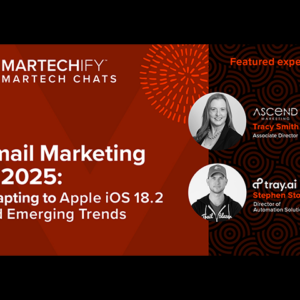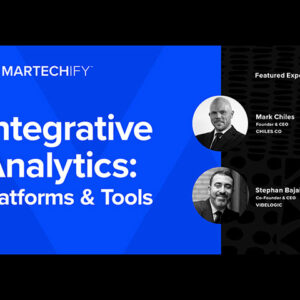Journey Marketing 101
- Ascend Marketing
- Campaign Optimization, Customer Experience (CX), Multi-Channel Journeys
At its core, journey marketing is a transformational shift in how marketers approach marketing, reach their customers and provide information. In practice, it’s a move away from more conventional, broadly based (some might say scattershot) communications in favor of highly targeted messages that are personalized for a particular customer’s or prospect’s unique stage in their lifecycle journey with a brand, from awareness and interest through engagement, experience and expansion. There are many ways the journey approach is transforming traditional marketing practices and providing key advantages:
- Its customer-centric focus means marketers have the ability to listen and react to customers and prospects on an individual basis and in real time. In effect, the customer actually creates and shapes the experience, directing the actions of marketers responding to individual behaviors.
- Journey strategy allows for continuous engagement with customers at the personal level throughout their relationship with a brand.
- Customer engagements with a brand are continually optimized to deliver better experiences that meet their changing needs.
True journey strategy goes far beyond automated marketing system capabilities in that it strategically orchestrates the evolving relationship between the customer and a brand. By allowing marketers to engage with customers on a highly personal level, as well as respond virtually in the moment, journey strategies make each experience better and more relevant. And just as transformations happen a step at a time, a journey marketing strategy can be implemented on a small scale to prove success before being expanded.
Understand. Capture. Create
The journey approach is a way of marketing that helps marketers:
- Understand how each person interacts with their brand at each point in their lifecycle.
- Capture the flow of those interactions for analysis.
- Create the most relevant message for that particular customer.
Not surprisingly, advanced data tools can power journey marketing through their ability to continuously update customer interaction data, so adapting to an individual’s behavior can be done in real or near-real time. It’s dynamic, conversation-like customer engagement, and that’s marketing at its most powerful.
Journey marketing creates better, more relevant customer experiences. And better, more relevant customer experiences produce faster revenue, profit and ROI growth, plus greater lifetime value for brands. Journey marketing helps solve some of the most essential business challenges faced by marketers today, including customer acquisition, onboarding, retention (upsell and cross-sell), win-back strategies and churn reduction. Its customer-centric focus provides a pivotal advantage in a crowded, competitive marketplace.
Individual journeys can be immensely different. For example, are we talking about prospects or existing customers? At the awareness, consideration or buying stage? Customer lifecycles and engagements are typically nonlinear, meaning that in real life people don’t always take a pre-determined path but instead jump back and forth, change their minds and stray from the norm. By tracking these non-linear behaviors, journey marketing “keeps up” with each customer’s lifecycle to continuously engage with the most relevant messaging.
Tailor each journey
Our first goal is to understand how customers interact with a brand, what they’re experiencing, how they’re responding, what they’re expecting. Customer activity can be tracked across multiple channels: websites, email, social media and even offline channels, such as call centers and direct mail.
The data gathered from these engagements helps us discern critical patterns of behavior to clearly understand lifecycle experiences with a brand from a customer perspective, which in turn informs design of the dynamic journey experience at the individual level.
Leveraging the knowledge gained, journey marketing methodology is then used to guide the design and execution of optimal customer engagements across all channels and touchpoints, then continuously updated based on dynamic data. Orchestration of the journey is now on a highly personalized level to produce a better (way better), more relevant customer experience.
Content is critical to a relevant customer experience, including elements such as the creative, the product offer and the messaging. Luckily, advanced data tools can now extract value from the behavioral data to generate personalized versions of the content for each customer. And even the best journey experience can be made better, and quickly. The technology tools now being employed allow data about each customer to be continuously updated so that a journey can be adjusted in real or near-real time to optimize the experience. This includes testing of content and other journey variables on a constant basis to ensure the evolution of the experience aligns with brand and organizational objectives.
How might a journey experience work in simple terms? Let’s use your website as an example. If a known visitor, Mel, abandons a conversion page on your site, the activity is noted and an email is sent to her immediately with a pertinent offer. Or a display ad with an offer Mel values can ‘follow’ her to appear on another web page she may visit. If data indicates Mel engages on Facebook, she may be added to an existing, custom audience for that social channel. At some point in her customer lifecycle, she may choose to reach out to your call center, whereupon her customer data and recommendations for next-best actions can be accessed immediately, giving your rep on the line a full view of customer Mel and the best chance at providing optimal offers.
For unknown visitors to your website, journey experiences can take shape as soon as they self-identify. Third-party data can then be matched instantaneously to their registration information, setting in motion a dynamic targeting process and launching new, personalized journey experiences.
Follow the trends
If a marketer’s goal is to build a brand, and brands are being built today by engaging customers with experiences that are meaningful to them, then the buzz around journey marketing will only increase. Its data-driven approach and powerful personalization advantages give it the ability to deliver much better, more relevant customer experiences and extraordinary business value. And its ability to be applied to prove performance in market quickly make its introduction attractive to many organizations.













